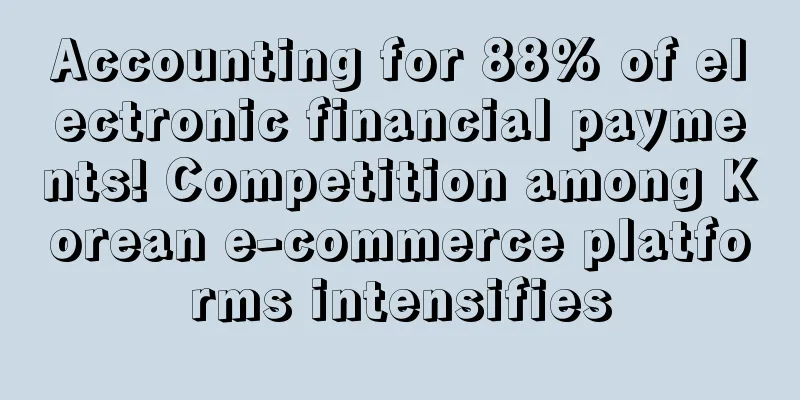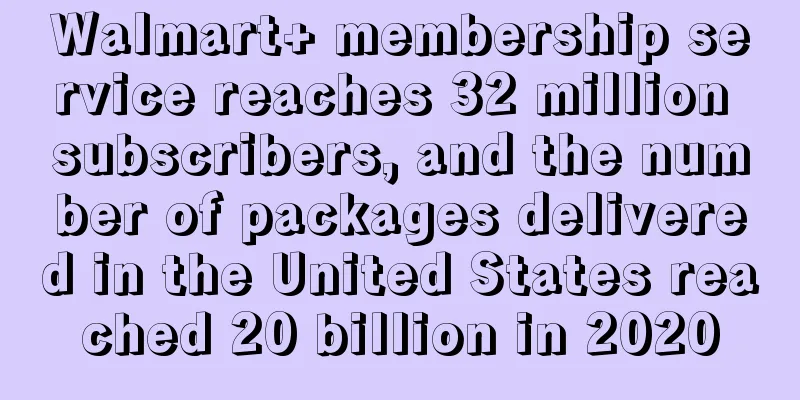The approval rate is as high as 98.8%! South Korea's "Online Platform Fairness Act" has sparked heated discussions

|
According to Korean media reports, most small business owners who use online trading platforms such as online shopping malls and delivery applications support the formulation of an "Online Platform Fairness Law."
It is reported that the bill initiated by the FTC aims to prevent unfair trade between commercial operators and enterprises and strengthen consumer protection .
The Korea Federation of Small and Medium Businesses said on the 31st that it conducted a survey of 1,000 companies in December last year , including 500 companies in open markets and 500 companies in delivery apps. The survey results showed that 98.8% of companies in open stores and 68.4% of companies in delivery apps supported the "Online Platform Fairness Act" proposed by the Fair Trade Commission.
As for the reason for the support, the most common response among open market tenants (39.5%) and delivery application tenants (51.2%) was that "a specific basis for responding to unfair trade practices has been prepared . "
The most selected item for improvement in the development of fair laws for online platforms was fee limits or guidelines .
Companies operating on online trading platforms responded that sales through online shopping malls and delivery apps have gradually increased, but many people feel burdened by high handling fees and advertising costs.
Based on last year’s statistics , the sales proportions of online shopping malls and delivery application companies through online trading platforms were 45.6% and 56.6% respectively.
69.0% of public market companies responded that they were satisfied with product display opportunities, but they were less satisfied with sales commissions and advertising costs, at 36.8% and 35.6% respectively.
Among companies that have settled in delivery apps, 63.2% believe that the levels of handling fees and advertising fees are too high.
The main trading platforms for companies entering the open market are Coupang (36.2%) , 11th Street (11.9%) , WeMef (13.4%) and Gmarket (11.0%).
In terms of delivery app stores, “Food Nation” accounted for more than half at 57.6%, followed by Yoyoyo (26.0%) , Wemepo (7.0%), Delivery Box (5.8%) and Coupang Itz (3.6%) etc. South Korea Online Platform market |
<<: Saudi Arabia cracks down on fake independent websites, 184 Chinese websites shut down
>>: Lululemon forecasts better-than-expected sales as digital business accelerates
Recommend
The Ministry of Commerce's Services Trade Department visits Shopee for research: Shopee is committed to strengthening its foundation and seeking innovation, and is deeply engaged in the construction of cross-border e-commerce services trade.
Shopee said: "As a leading cross-border e-co...
Amazon's warehouses are overflowing! Prime Day countdown is approaching, but sellers have no goods to sell...
The "Battle of Member Day" is about to ...
What is BitCash? BitCash Review, Features
BitCash is one of the most popular electronic curr...
Interview with FastData founder Shi Wenlu: In the TikTok e-commerce era, find your own suitable position and do your own suitable business!
With the rise of TikTok and various short video p...
Amazon founder Bezos to start space travel on July 20; British buyers may spend £1.4 billion on Prime Day
Amazon founder Bezos will start space travel on J...
What is AMZ-MAX? AMZ-MAX Review, Features
AMZ-MAX has professional experience in Amazon big ...
Another market is booming! Demand continues to rise
As the epidemic in the United States recurs, majo...
Raised $50 million! Outdoor home furnishing brand Outer continues to grow
Recently, the outdoor home furnishing brand Outer...
What is yoeleobike? yoeleobike Review, Features
Yoeleobike focuses on e-commerce-based carbon fibe...
Another batch of Amazon operators leave!
In the cross-border circle, Amazon operations hav...
Active users on the platform reached 41.8 million at the end of the quarter! Zalando raises its full-year outlook for the first quarter
According to foreign media reports, German e-comm...
Facebook supports sellers to direct traffic to FB stores
Advertising expert Tony Christensen tweeted that ...
What is DX.com(Dealextreme)? DX.com(Dealextreme) Review, Features
DX.com belongs to DX Holding Group and is a compre...
Camera sales boom in spring as lockdown eases
The epidemic has made working from home a new tre...
E-commerce grew 30%, and these products were the hottest selling in the United States in 2020
U.S. e-commerce grew 30% in 2020, the fastest gro...









